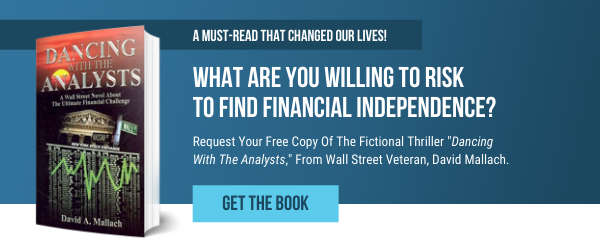The question of advisor compensation is central to establishing the relationship between advisor and client – and if it’s not, it needs to be. Clients are sometimes uncomfortable bringing up the issue, because talking about money isn’t easy. Also, not all advisors are forthright about how they are compensated, so it’s important for clients to be well-informed before deciding on the advisor that’s right for them.
There are essentially two ways a client may be compensated for giving financial advice: Fee-Only and fee-based (whereby fee-based itself could be a mix of “fee plus commission” or pure commission). While it’s important to know the difference between Fee-Only and Fee-based, the truth is that advisor compensation is not THE most important factor to influence the success of your financial journey. But we’ll get to that in a moment. For now, let’s look at a few definitions.
What is a Fee-Only Financial Advisor & How are They Compensated?
Fee-Only compensates the advisor on plan advice, plan implementation, and ongoing asset management. It eliminates conflicts of interest by bringing full transparency into the client-advisor relationship. The National Association of Personal Financial Advisors, NAPFA, is the leading professional association of Fee-Only advisors, committed to ensuring that the fiduciary standard is maintained. NAPFA-aligned advisors, like Beck Bode, follow the NAPFA code of ethics by committing to act in good faith and candor, to be proactive in disclosing potential conflicts of interest that may harm the client, and to not accept any referral fees or compensation contingent on the sale of a financial product. “Fee-Only financial advisors may be paid hourly, as a retainer, as a percentage of assets (AUM), or as a flat fee, depending upon the planner you choose,” as NAPFA accurately points out.
What is a Fee-Based Financial Advisor & How are They Compensated?
Fee-based compensation can be any relationship where the advisor is compensated based on the financial products they sell. When Ben and I worked at Merrill Lynch, part of our compensation came from fees we charged for the advice we gave, and part of it came from commissions, meaning earnings we received from the companies that created the financial products, who rewarded us every time we sold their products. It’s easy to get confused here, so if you are wondering what “commissions” means, just think about being compensated on a transaction. A financial advisor can sell an insurance product, an annuity, or a mutual fund and receive a commission.
The Importance of Fiduciary
As soon as you start talking about fee-based and Fee-Only, another technical term comes up: “fiduciary.” “A fiduciary must place the client's best interests first, under a legal and ethically binding agreement.” (Investopedia). You’d think this was a no-brainer, but it’s not, because of additional linguistic complexities. If you start paying close attention to the language used by financial advisors, you may notice that some of them refer to giving “suitable” guidance, while others refer to “best interest.” What’s the difference and why should you care?
Fee-Only Financial Planner vs. Fee-Based
Let’s use this example to explain the difference between suitability and best interest. Say you’re hungry. Basically, it means that your body needs calories. To give your body the calories it needs you need to find some food. You may choose to give your body some candy because that has calories, right? Of course. Candy is suitable, in that it meets the body’s caloric needs. Now take a step back. Is it in your body’s best interest to eat the candy, simply because candy falls into the category of items that have caloric value? Probably not. Candy may have calories you need, but it’s not really in your best interest.
Where does this leave us in the question of Fee-Only versus Fee-based advisors? Who cares?! This may come as a shock to you, but as we mentioned in the introduction to this article, the question of Fee-Only versus Fee-based should not be your biggest concern. Well, if not advisor compensation, what then should consumers pay attention to when it comes to picking an advisor?
Working with a Fee-Only Financial Advisor - What Should I Look For?
The short answer? Strategy. Any advisor worth their salt needs to be able to explain how they will get you from here to there, from where you are today to where you would like to be in the future. That first strategic deliverable usually takes the form of a written, holistic, comprehensive financial plan. Takeaway #1 from this article is: Work with an advisor who develops a comprehensive plan before recommending any investment program.
As a NAPFA-aligned firm, we’re biased. Of course, we think you should only work with an advisor who has your best interest in mind. And of course, you want someone whose judgment isn’t tainted by kickbacks and commissions. Once you have a financial plan, you will need an investment program to fuel the plan. Here again, we go back to strategy. Who cares if your advisor is Fee-Only or Fee-based if they don’t have a strategy?
If your advisor is unable to tell you how they make the investment choices to propel your plan forward, you’re in trouble. Your financial advisor should be able to explain to you, in simple language, what to buy (and why), when to sell and what to do with the proceeds.
At Beck Bode, we have come to learn that very few advisors know the answer to these questions. As a client, it’s your job to press your advisor to provide answers or to start interviewing other potential candidates for the job.
James Bode is Managing Partner at Beck Bode, a deliberately different wealth management firm with a unique view on investing, business and life.

 James Bode
James Bode